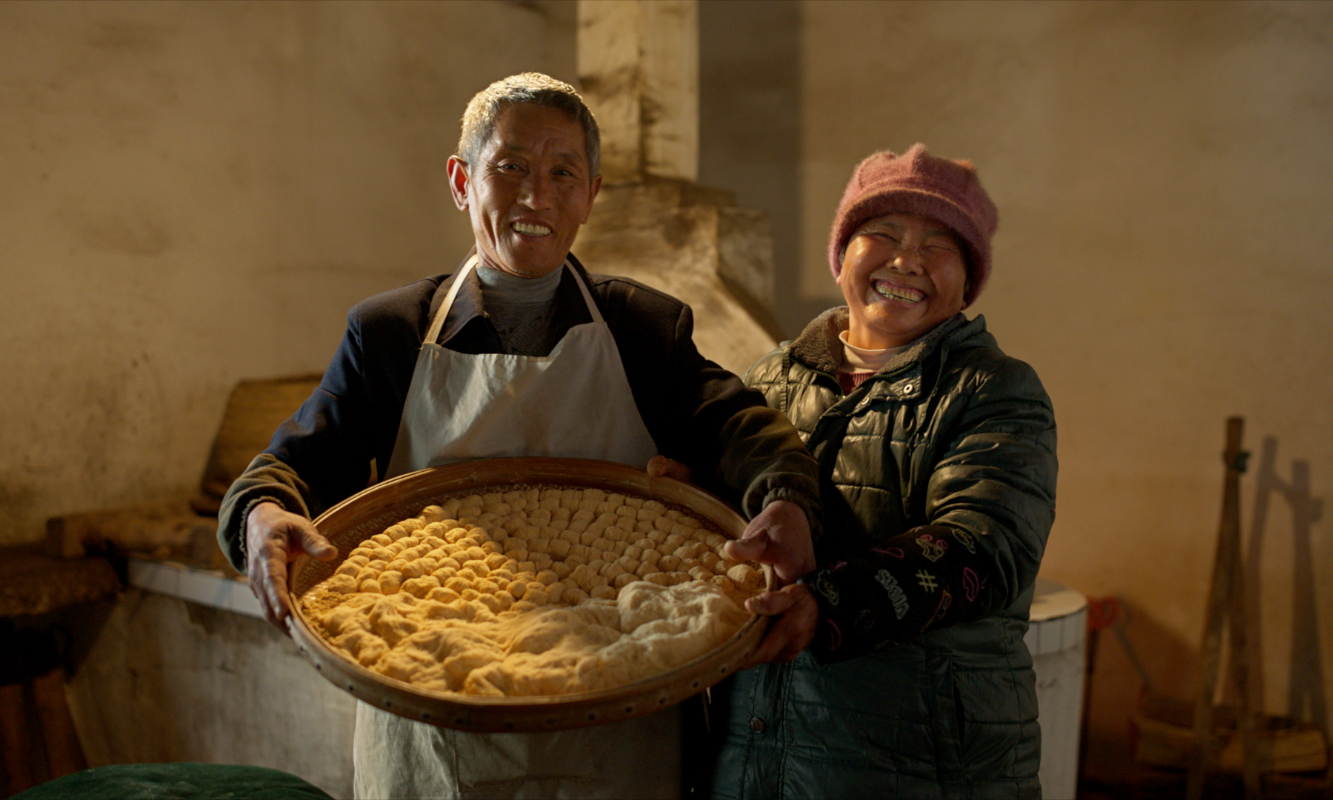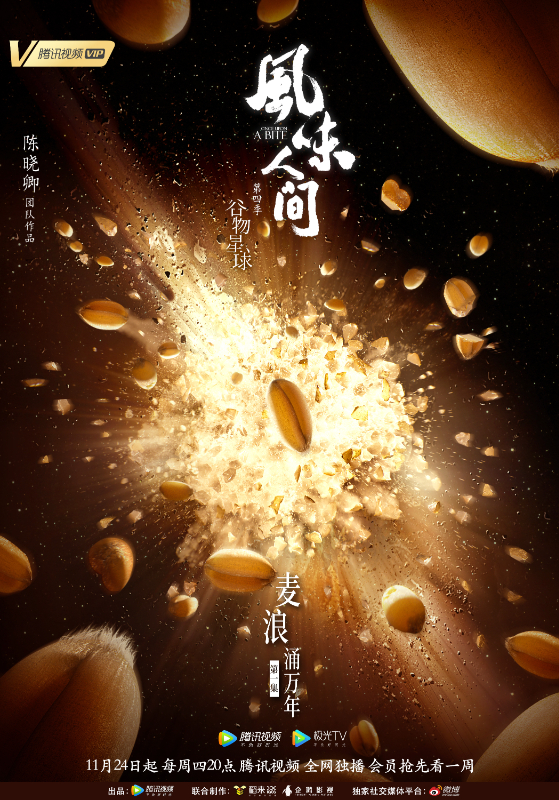
Promotional material of the documentary series Photos: Courtesy of Tencent Video
In China, they are called jiaozi; in Turkey, their name is manti; and in Italy, people call them tortelli… No matter whether they are round, square or horn-shaped, these tiny morsels of dough wrapped around fillings ranging from meat to tofu, dumplings, are one of the world's most popular foods.
"In China, grain foods always give people a sense of security and satisfaction," Chen Xiaoqing, one of China's most well-known food documentary directors, told the Global Times, explaining his thinking about making a separate series about the world's most popular grains and the dishes made from them.
"Additionally, we hope to explore why people from different places eat different grains and how these grains shaped their lives and their character," added Chen, whose latest work, the fourth season of Once Upon A Bite, started airing on Chinese streaming platform Tencent Video on Thursday.
"These things are very interesting and also related to food," Chen said.
Every grain counts
A millenium ago, the domestication and propagation of grains helped with the development of human civilizations. An indispensable food, grains such as rice, soybeans and wheat have dominated our lives, becoming linked with our emotions. Chen and his partner, director Chen Lei, wanted to explore people's love for grains, a commonality that links different ethnic groups living thousands of miles apart.
Both directors recalled that when the idea to make the series emerge five years ago, they wanted to focus on the larger global picture with producer Deng Jie.
"We didn't just want to visit other countries to shoot locally, but also wanted to discover interesting and high-quality stories," said Deng.
Due to the COVID-19 pandemic, the team had to find local teams and partners in Europe, the Middle East and South America to help with the filming, which was no easy task.
"It took three or four hours of communication each time to make sure they followed the way we wanted to tell a story and follow the same style as our other stories."
No matter whether it is the shared stories of dumplings or the different ways to cook wheat, every kind of grain has a long story with humanity, which inspired Chen Lei "to make it pure and simple."
"Each of them is close to our lives. Wheat represents the earliest agricultural birth and can be traced back to 10,000 years ago, and even potatoes are related to the civilization of the indigenous people of the Andes in South America with a history of at least 7,000 or 8,000 years. We think that every grain is worthy of respect, and it is worth telling its story and history, which is what we want to do this time. This is a diverse planet, with diverse grains, every grain and even very niche grains should be respected," Chen told the Global Times.
Shared human wisdom

Promotional material of the documentary series Photos: Courtesy of Tencent Video
Wheat and rice as well as the dumplings, rice, noodles and other dishes made from them feed us, make us happy and help us find meaning in life. In Deng's eyes, the most moving stories are about people living in harsh conditions and the grains that accompany them. For instance, the story of Auntie Xinghua and the naked oats she planted in North China's Shanxi Province is one such example.
"We drove along the ancient Great Wall and stopped by a small village, which is a common thing to do in China nowadays," recalled Deng.
"We saw only old people guarding their fields."
Auntie Xinghua was a positive person who loved singing and cooking various breads or noodles from youmai, or naked oats, for her children and grandchildren when they visited her on weekends.
"It is one of the stories about Chinese dinner table, the wisdom behind each dish and the love people have for each member of the family," added Chen Lei.
Wheat is native to Mesopotamia in West Asia. It may have been introduced to China thousands of years ago before the Han Dynasty(202BC-AD220) and then became the most important food crop in northern China.
"In the story of dumplings, especially steamed and boiled dumplings, we show how it is a form of food that slowly spread westward from China," said Chen, saying that he hopes the series can deliver a message about the shared human wisdom toward grain.
The Three Sisters - squash, corn and pole beans - are also featured in the series. In many indigenous groups, the farming of these crops are very similar to Chinese people's farming techniques that combine fish and rice farming in one. One technique involves planting maize and beans together in mounds formed by piling a mound of soil around the base of the plants each year,and squash is typically planted between these mounds.
"Such a wonderful story about harmonious farming and human being's great farming wisdom," added Deng.
Many of such stories are featured in the new series, offering a platform for audiences to "gain new knowledge," said Zhu Lexian, who is responsible for documentary content at Tencent Video. "What is more, food documentary series need to improve in order to provide audience with a visual feast," Zhu said, commenting on the future of the Once Upon A Bite series.



